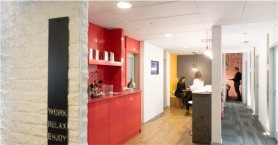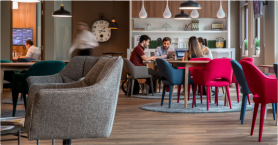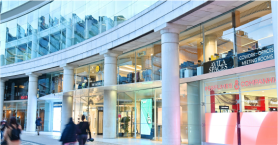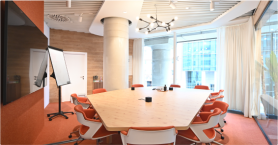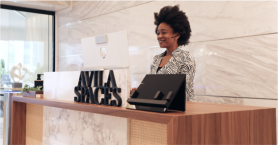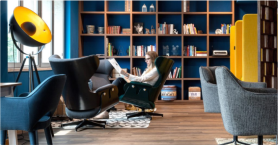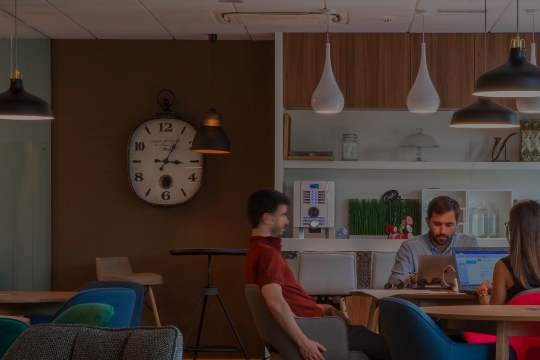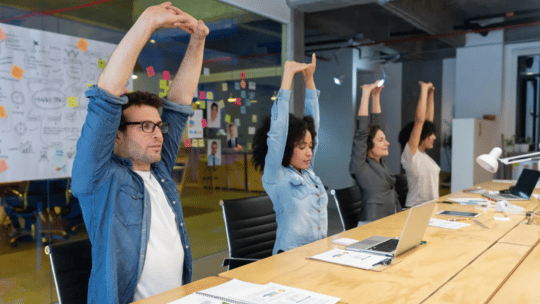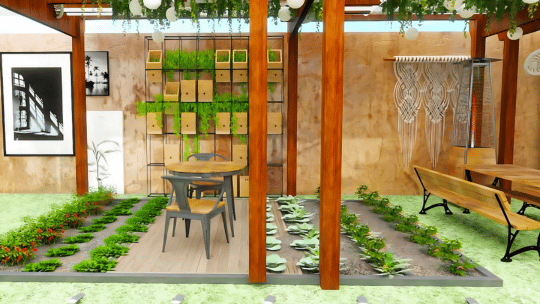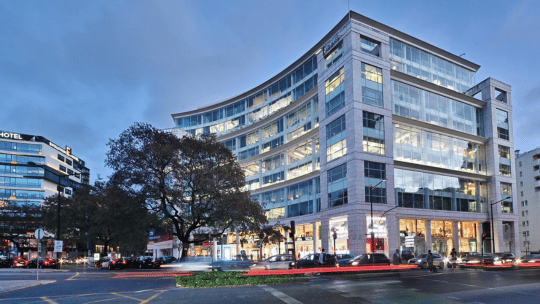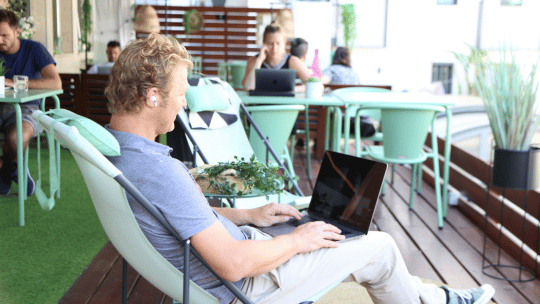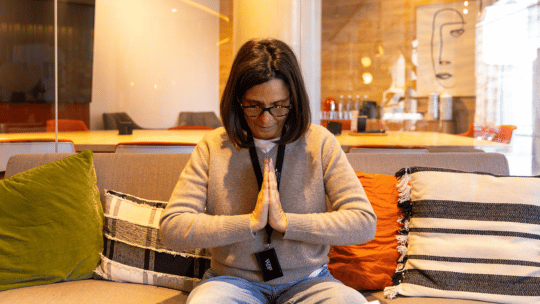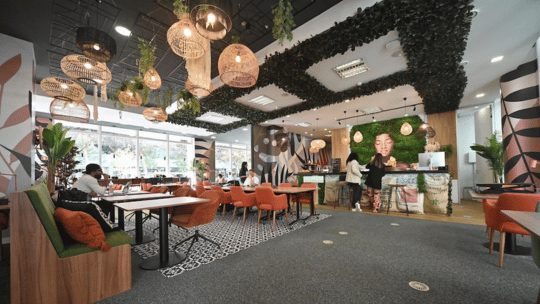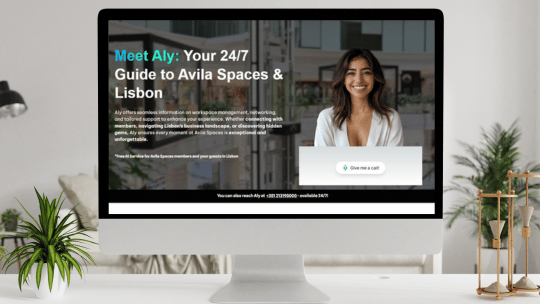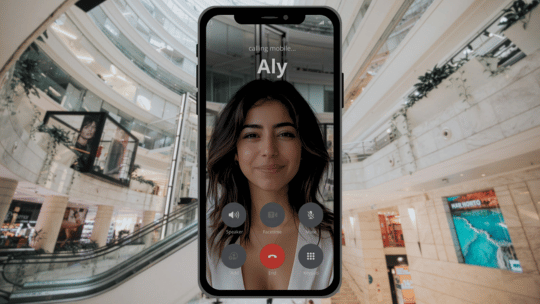|
This month, Avila Spaces gave an interview to Magazine Imobiliário about the new trends in work models, which we transcribe below. Real Estate Magazine Interview - CEO of Avila Spaces Carlos Gonçalves How do you see the office market, particularly the flexible workspaces in Portugal before, during and after the state of emergency declared by the official authorities? The current state of emergency has accelerated a trend that had already been observed before the Covid-19 pandemic: the so called "hybrid model" which allows employees to work from other locations in addition to the offices of the companies. Due to the lockout, most professionals had to work from home and many of them felt isolated, and in need to liaise with other co-workers. Although the technological developments facilitate remote work, it is crucial to maintain the emotional bond with the company and preserve its culture. Therefore, coworking spaces are considered a solution sought by many companies that want to offer their employees an alternative to the "home office". It is clearly a "win-win" solution: companies can release office area and professionals can increase their productivity and have meetings in a third place: professionals spend less time commuting and spend more time with their families. In April there was a 38% increase in demand for virtual offices. What progress has been made since then? This trend continues to date. In times of crisis, there is always a marked demand for the service provided by virtual offices, not only for the savings it represents - from 70% to 90% of the costs – but, first and foremost, because it enables companies to continue operations with access to all essential services: a prestigious address in the centre of Lisbon, customised telephone services, administrative back office support, mail management, meeting rooms, and coworking places. It is an interesting service, not only for companies that decide to implement job losses because of downsizing, but also for those looking to explore business opportunities and doing market research in Lisbon. It represents a monthly cost which ranges from 50€ to 80€ plus VAT. Coworking acts as an alternative between working from home and the office, and it is perhaps a more feasible and advantageous solution under the current scenario of uncertainty and economic hardship. Do you agree? Coworking makes perfect sense in the present context. However, companies must ensure that these spaces provide the highest quality of service based on the following elements: state-of-the-art technology; computer network security; meeting rooms and comfortable workstations; excellent ergonomic conditions; privacy; appropriate acoustic insulation, and compliance with good hygiene and safety practices which is particularly vital during the pandemic period. It should also be highlighted the networking opportunities available in these coworking spaces. In the case of Avila Spaces, we have an internal social network - Avila Connect – and we usually organise events in our Business Lounge, involving our customers and partners. Most companies have scheduled the return of their employees in September and October, whereas other more cautious companies expect to see this reality only by 2021. In your opinion, what will the most realistic scenario be? Companies have different realities and I think they are setting out these schedules according to their teleworking experiences as well as considering the employees’ expectations regarding the return to their work routine in the office. One thing is clear: companies are pondering different scenarios which will be implemented depending on the evolution of the pandemic and on the various alternatives of workstations that professionals will have at their disposal. Under this period of uncertainty and as a member of the eOffice International Network, what feedback have you obtained with regard to the flexible workspaces at international level? Portugal is in line with what happens in developed countries. According to the Barometer on teleworking published in June by Avila Spaces, we concluded that the experience of working outside the office during the lockout was positive for 84.1% of the surveyed. When asked about the regularity of this same work, 30.4% stated that they would like to work outside the office once a week, 28.9% would like to work outside without a defined periodicity, and 18.6% would like this model to be permanent. It is still too early to draw any conclusions and taking into account the barometer data and other international studies, I believe that people would prefer to have a hybrid model where it is possible to work outside the office at least once a week. Initially, this will be considered normal since no organisation will ask for the return of all its employees simultaneously, due to the dangers of the contagion effect, but in the long term this flexibility will be a reality following the trend that had been observed before the Covid-19 pandemic. Carlos Goncalves CEO Avila Spaces |
Other articles
In today?s competitive job market, attracting top talent is only half the battle. Retaining...
The Re:Space is a project idea that aims to transform underutilized outdoor spaces into...
Avila Spaces has just launched a new initiative that promises to energize the business ecosystem...
Coming back to the office after a vacation can feel like a shock to the system. Let's...
Holidays are meant to be a time of rest, joy, and reconnection?with ourselves, others, and the...
We currently live in a reality where acceleration is a constant. More and more, we seek...
In the modern, fast-paced workplace, productivity often feels like a race against time....
The second edition of Remote Week in Fundão has been confirmed. In 2025, a new group of...
Avila Spaces has been awarded the prestigious ?Cinco Estrelas Regiões Award? in the ?Coworking...
Avila Spaces announces its sponsorship of Pedro ?Figgy? Figueiredo, one of Portugal's most...
After its initial launch aiming to provide information on the Web Summit 2024 and Lisbon's...
Avila Spaces has introduced, in collaboration with Elbo Pte, an open-access virtual assistant,...
